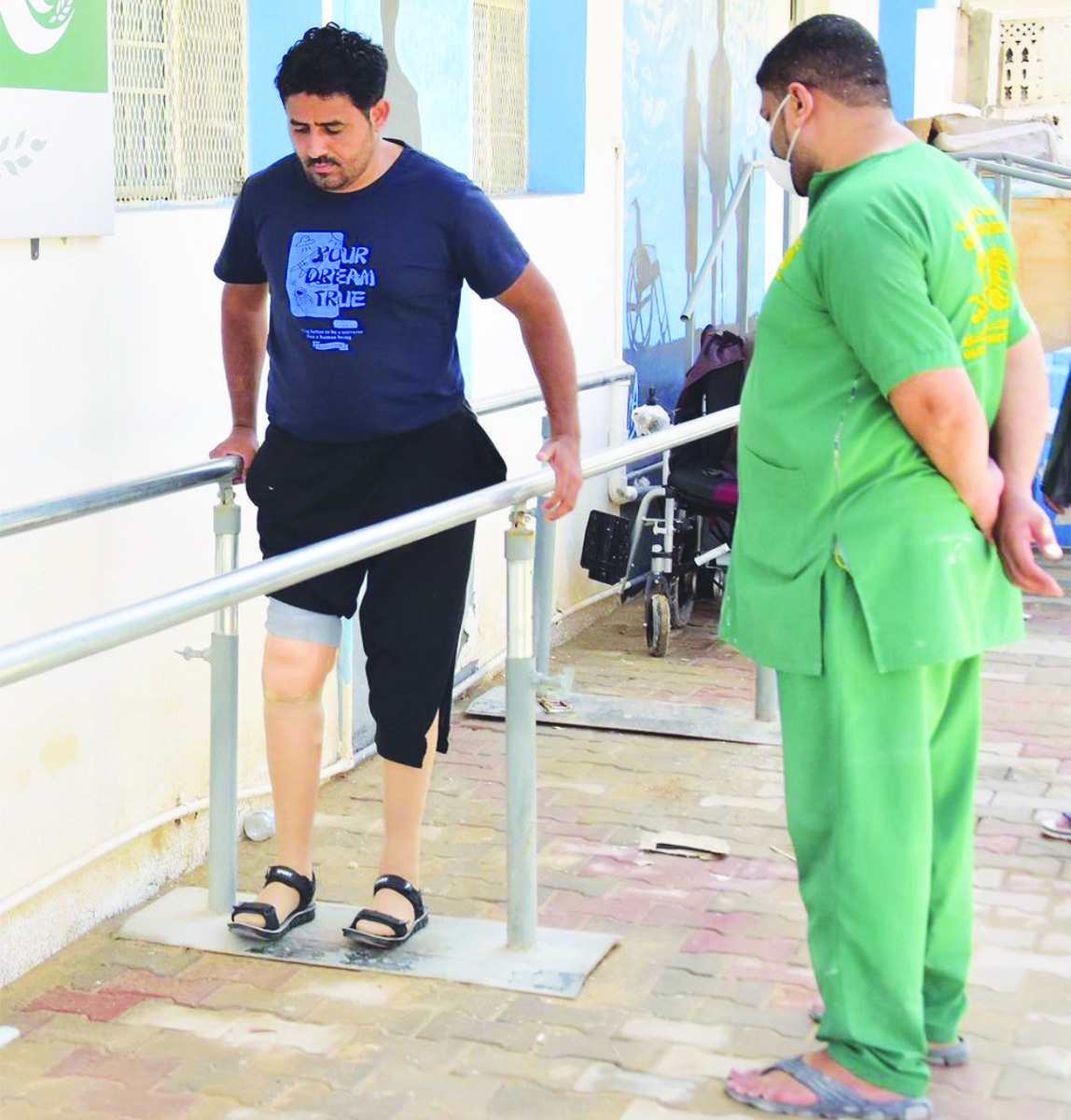https://arab.news/w4vm5
- Masam is one of several initiatives undertaken by Saudi Arabia on the orders of King Salman to help the Yemeni people, clearing routes for humanitarian aid to reach the country’s citizens
RIYADH: The Saudi aid agency KSrelief continues to provide humanitarian aid to nations across the globe including Yemen, with the Masam project and the prosthetic limb program in the war-torn country providing much-needed support for those injured by explosions.
Recently, the project’s teams dismantled 605 devices planted by the Iran-backed Houthis in the fourth week of June. It includes 125 anti-tank mines and 480 unexploded ordnance.
Masam is one of several initiatives undertaken by Saudi Arabia on the orders of King Salman to help the Yemeni people, clearing routes for humanitarian aid to reach the country’s citizens.

KSrelief’s prosthetics center in Yemen offers physical therapy and other services to assist those who have lost limbs. (SPA)
In June, the project managed to dismantle a total of 4,899 mines, contributing to a cumulative count of 405,818 cleared mines since the program’s inception in 2018.
These mines, planted indiscriminately by the Houthis across Yemen, have posed a significant threat to the lives of innocent individuals, including children, women, and the elderly.
Osama Al-Gosaibi, Masam project director, said: “This achievement is the result of five years of relentless effort in the fight against mines. It is a remarkable and promising number that the team takes great pride in. The project’s remarkable success was achieved under challenging conditions of demining and in a country that is unfamiliar with handling mines.”
FASTFACT
406K
In June, the Masam project managed to dismantle a total of 4,899 mines, contributing to a cumulative count of 405,818 cleared mines since the program’s inception in 2018.
Al-Gosaibi added: “The Kingdom is consistently loyal to its commitments and determined to advocate for humanity in various parts of the globe. Its commendable endeavors in Yemen, such as the Masam project to remove landmines, are a shining example of its humanitarian efforts.”
The demining operations took place in Marib, Aden, Jouf, Shabwa, Taiz, Hodeidah, Lahij, Sanaa, Al-Bayda, Al-Dhale, and Saada. More than 1.2 million mines have been planted by the Houthis, claiming the lives of hundreds of civilians.
The project trains local engineers and provides them with modern equipment. It also offers support to Yemenis injured by the devices. Last month, the project’s contract was extended for another year at a cost of $33.29 million.
Saudi Arabia, through KSrelief and the Masam project, remains dedicated to clearing mines from Yemeni territory, thereby playing a crucial role in ensuring the safety and well-being of Yemeni citizens.
Meanwhile, KSrelief’s prosthetics center in Yemen has provided help to hundreds of people. The project offers physical therapy and other services to assist those who have lost limbs to reintegrate into society.
The rehabilitation center in the Seiyun district of Hadramout governorate provided 1,135 services to 291 beneficiaries in one month, including the manufacture, fitting, delivery and maintenance of prosthetic limbs for 75 patients.
Other treatments, including physical therapy and consultation sessions, were also provided for 216 patients.
Yemen is among the top beneficiaries of KSrelief assistance. The center has implemented 814 projects in Yemen worth over $4.2 billion.
Its programs include food security, health, humanitarian and emergency relief, water and hygiene, sanitation, shelter, protection, camp coordination, nutrition, education, multi cluster, early recovery, Logistics and telecommunications.
Worldwide, KSrelief has implemented 2,402 projects worth more than $6.2 billion across 92 countries. The initiatives have been carried out in cooperation with 175 local, regional and international partners since the inception of the center in May 2015.